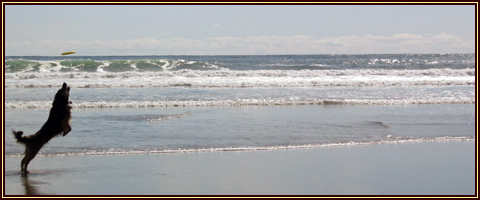Tips For Good Puppy Health
If you have never owned a puppy before, you might be feeling a little overwhelmed with the sudden responsibility of caring for the wellbeing of your new pal. In this article you will learn about the basic health responsibilities you should attend to and how you can go about doing so.
The first thing we’re going to talk about is your pup’s diet. The food your puppy eats will likely change from semi-liquid to a solid, depending upon the age of your dog when you bring him home. Puppies usually start to wean from their mother’s milk between six and eight weeks of age, which is about the same time that breeders will allow the puppy to go live with its new owner. Find out what the breeder is feeding the puppy, and continue feeding him on that food. Usually at that age they are eating moist food from a can mixed with a bit of puppy milk replacement. After a week or two, start taking away the milk and gradually adding dry food over the course of 7 – 10 days until your pup is eating nothing but dry food. You’ll also need to make sure that his water bowl is constantly filled. You should also know that it can be very harmful to feed your dog table scraps. There are many foods that can cause your dog severe health issues and even death. Some of these foods include chocolate, raisins, onions, garlic, and potatoes.
Your next concern should be to see that your dog gets all of the required vaccinations. Some breeders may start the vaccination process, so check with your dog’s breeder to find out if any vaccinations have been given to your pup. There are three shots given three weeks apart. These shots are referred to as the “core” injections. They help to prevent your pup from contracting distemper, parvovirus, and hepatitis. You can have the first shot administered when your puppy is 6 weeks old. Your veterinarian may suggest vaccinations to prevent illnesses that are a concern for certain breeds or demographic regions. These are called non-core vaccinations as they are not a requirement for all dogs. To be on the safe side, we recommend you keep your dog away from other dogs (that are not in your home) until your puppy has completed his round of core vaccines. They will become effective about 10 days after the last vaccination.
Our next health tip is grooming. Regardless of the breed of your puppy, all dogs require a certain amount of grooming. For instance, long-haired dogs will require much more brushing and haircuts than other breeds, but there are also some breeds, particularly the ones with long ears, that need their ears cleaned frequently to avoid infection. All dogs need to have their nails clipped every so often, but we recommend that you have this done professionally if you aren’t experienced at the job, as clipping too close to the quick in your dog’s nails causes a great deal of pain and bleeding. Do a bit of research on your puppy’s breed to get a good idea as to what your grooming responsibilities will be.
Exercise is one of the most vital aspects of your dog’s health. Your puppy will have a great deal of energy, which is completely natural! You should encourage playtime, especially outdoors so that he can have tons of room to romp around. If your puppy becomes restless, he may chew excessively which can be dangerous for your puppy (think of all the cords/cables plugging into your outlets, as well as wooden furniture that can splinter!). Pet steps are a great tool you can use to give your dog a workout. The time you spend training him to use the dog stairs to get onto furniture will encourage your pup to bond with you as well as to be obedient and respectful.
For more tips on raising a healthy pup, visit HelpYourPets.com.







